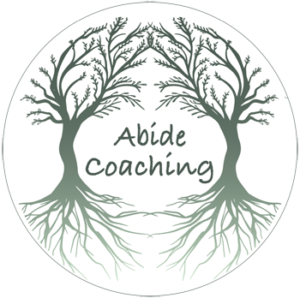Self-care is a vital part of life. The term seems like it is everywhere now, but actually, it is nothing new. Our lives move at a ridiculous speed these days so much so that we need to remind ourselves to take care of ourselves. Nowhere is this truer than in college. The expectations put on students either by themselves or by others can be overwhelming.
Here is a checklist:
- Sleep – I have said this before, and I will repeat it. There is no hack for sleeping. The majority of our sleep in non-REM. While we are in this stage, our bodies are busy working to repair and grow new tissues, restore energy and hormones that we use for growth and development. REM sleep is when we are dreaming, but work is still being done. Our minds are processing and consolidating emotions, memories, and stress. REM sleep is also critical for learning; it stimulates the brain regions used in the learning and development of new skills. Check out what the National Institute of Health has to say about sleep. https://www.nhlbi.nih.gov/health-topics/sleep-deprivation-and-deficiency
- Eat -Treat mealtime as a break, slow down, sit down, enjoy some your food, and enjoy the company you have. I am not a nutritionist, but many campuses have one so if you need one ask for help. In general, I follow the rule of if I can pronounce the ingredients or understand precisely where they come from in nature, then I am not going to eat it. It is a good rule that automatically knocks out most processed food.
- Water – There is a whole aisle of water in the grocery store, and everyone owns at least one water bottle. So I ask why is it that according to Quench Survery (2018 ), 77% of people aren’t drinking enough water. Some experts say to drink eight 8-ounce glasses a day, and others say to drink half an ounce to an ounce per pound. Either way, you should probably be drinking more. Dehydration means your body has lost so much water that it can no longer function correctly. The systems can range as can the severity.
- Move your body – Exercise has so many well-documented benefits. When you exercise the brain releases neurotransmitters, which allows your executive function skills to work better. I have clients who work-out daily, others that work-out right before tests or meetings, others that do push-ups and crunches on the hour right by their desk, others who stand to work so they can move around. Check out this article for Additude Maginze. https://www.additudemag.com/the-adhd-exercise-solution/
- Nature – If you did a Google search for the benefits of being in nature loads of studies and other blogs would come up. I know I just did it. Being in nature can help you relax, lower your blood pressure, release muscle tension. Go outside.
- Routines – Creating and sticking to routines allows people with ADHD to form habits, make sure little things are getting taken care of and have some structure. I often spend time helping my clients create routines. These routines look different for everyone. There is no norm; just what is right for you.
- Planner – All of my clients with ADHD benefit from a paper planner. I like passion planner. You will need to create a routine around using it, but once you do, it will allow you to have one trusted place to dump whatever is in your brain. Having this trusted place will keep you from having to use energy to remember.
- Relationships – Only keep relationships that are supportive and positive in both directions. Loyalty is a great attribute, but if a relationship is toxic to your mental health dump it.
- Alone time – Even if you are an extrovert, everyone needs time alone. Spending some time alone can increase creativity, productivity, and empathy, and allows you to get to know yourself, plan your future, and build mental strength. Try meditation, praying, journaling, or being in nature. This time alone should be tech-free time. Here is a great journal that only takes five minutes. https://www.intelligentchange.com/collections/all/products/the-five-minute-journal?gclid=CjwKCAjw-vjqBRA6EiwAe8TCk0Iu4bsh7YyU6r1rckzP_ESKj9KqNiGgtrX4LH80YaMRG-OAzvADbhoCA7YQAvD_BwE
- Art – You don’t have to be good at art for art to benefit you. There are plenty of studies that show making art relieves stress and increases self-esteem, connectivity, and plasticity. If you don’t want to make it at least so see some. Going to an art museum increases empathy, tolerance, and feelings of love. Doctor’s are even starting to “prescribe” trips to the museum to patients. A trip to the museum may be a great way to have some alone time.
- Be forgiving – You are going to make mistakes. Some of them will be huge. Wallowing will not help. Admit your mistakes. Make a plan and move on. Remember, others will make mistakes too.
- Celebrate – In my experience, people with ADHD are horrible at this. When they finish a project or difficult task, they don’t pause to appreciate what they have accomplished. Take some time, depending on the accomplishment to celebrate. Maybe share it with someone who will be proud of you.
- Mom – Call your Mom. She would love to hear from you. She loves and always makes you feel better.


